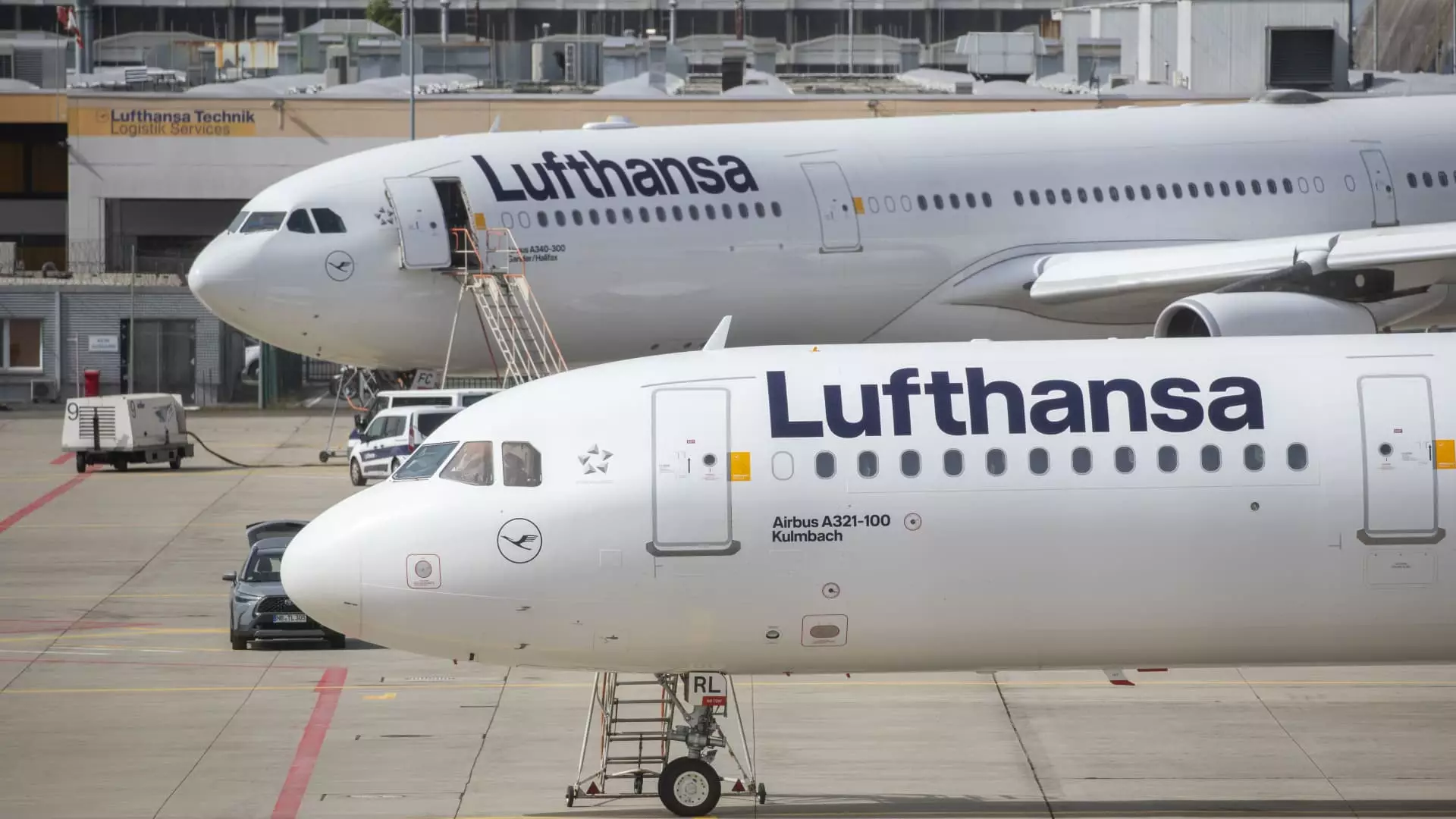The announcement made by Lufthansa Group regarding the introduction of an “environmental cost surcharge” on ticket prices has sparked a significant amount of discussion within the aviation industry. This move is part of an effort to cover the additional costs incurred by regulatory environmental requirements set by the European Union and International Civil Aviation Organization. The surcharge, which could be as high as 72 euros, will be applied to flights departing from various countries, impacting customers from the EU, the U.K., Norway, and Switzerland.
Lufthansa justified the need for the surcharge by highlighting the rising costs associated with complying with environmental regulations. These regulations include EU quotas on sustainable aviation fuel usage, emissions trading systems, and the International Civil Aviation Organization’s climate protection agreement. The airline group emphasized that these regulations would lead to significant costs, running into billions in the future, necessitating the implementation of the surcharge.
Customers booking flights operated by Lufthansa Group will experience varied surcharge amounts based on factors such as flight route and fare, ranging from 1 euro to 72 euros. This additional cost, visible during the booking process, will be applied to tickets issued from June 26 onwards for flights departing from January 1, 2025. The implications of this surcharge raise concerns among travelers, who may need to adjust their travel budgets to accommodate the increased ticket prices.
Lufthansa acknowledged the importance of investing in technology to enhance the sustainability of aviation and support climate research. The airline group recognized that achieving net-zero emissions by 2050 would require significant efforts and financial resources. Sustainable aviation fuel, made from sources like waste oil, nonfood crops, and carbon capture processes, is positioned as a key component in reducing emissions in the aviation industry. The International Air Transport Association suggests that sustainable aviation fuel could contribute significantly to the industry’s emissions reduction targets.
Despite Lufthansa’s commitment to environmental sustainability, the airline group expressed concerns about bearing the escalating costs resulting from regulatory requirements independently. The evolving nature of environmental regulations, including increasingly stringent quotas and emissions reduction targets, presents a challenge for airlines like Lufthansa. The need to navigate these challenges while ensuring operational efficiency and passenger satisfaction remains a critical priority for the company.
Lufthansa’s decision to introduce an environmental cost surcharge reflects the broader industry-wide efforts to address climate change and reduce carbon emissions in aviation. While this move signifies a proactive step towards environmental sustainability, it also raises questions about the financial implications for customers and the aviation sector as a whole. As airlines navigate the complex landscape of environmental regulations and technological advancements, finding a balance between operational costs, environmental impact, and customer expectations will be crucial in shaping the future of air travel.


Leave a Reply